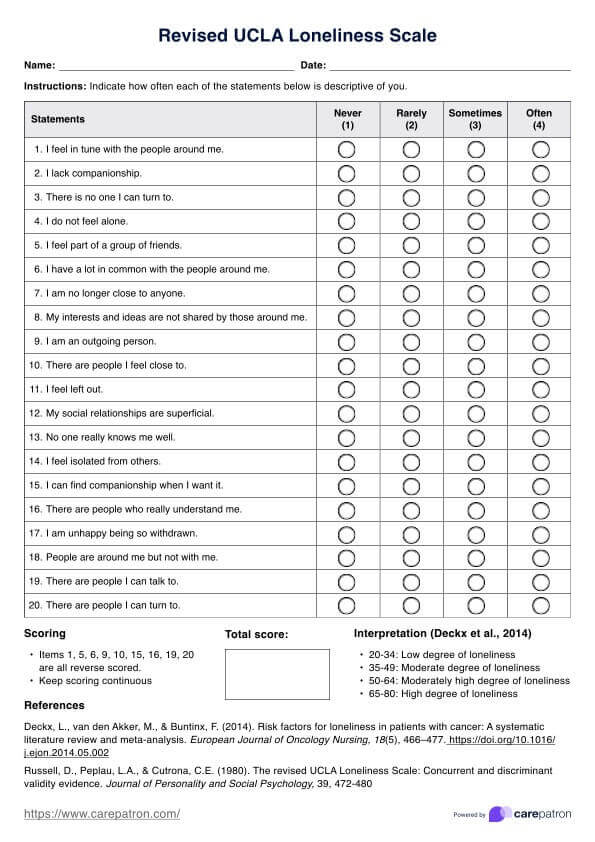The UCLA Loneliness Scale is a widely used tool designed to measure individuals' feelings of loneliness and social isolation. Developed in social psychology, it provides insights into both emotional and social loneliness.

UCLA Loneliness Scale
Measure the subjective experience of your clients' social isolation and loneliness with the UCLA Loneliness Scale.
UCLA Loneliness Scale Template
Commonly asked questions
The UCLA Loneliness Scale measures subjective experiences of loneliness, including feelings of being left out or lacking companionship. It assesses how connected individuals feel within their social relationships, highlighting emotional well-being.
Scoring the UCLA Loneliness Scale involves participants responding to 20 items on a 4-point Likert scale, with higher scores indicating greater loneliness. Researchers reverse-code positively worded items and calculate the average rating to determine the overall loneliness score.
EHR and practice management software
Get started for free
*No credit card required
Free
$0/usd
Unlimited clients
Telehealth
1GB of storage
Client portal text
Automated billing and online payments











